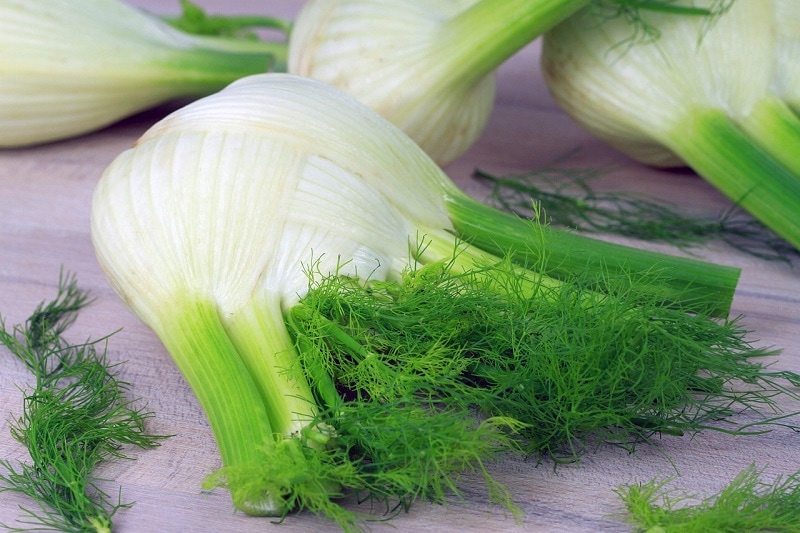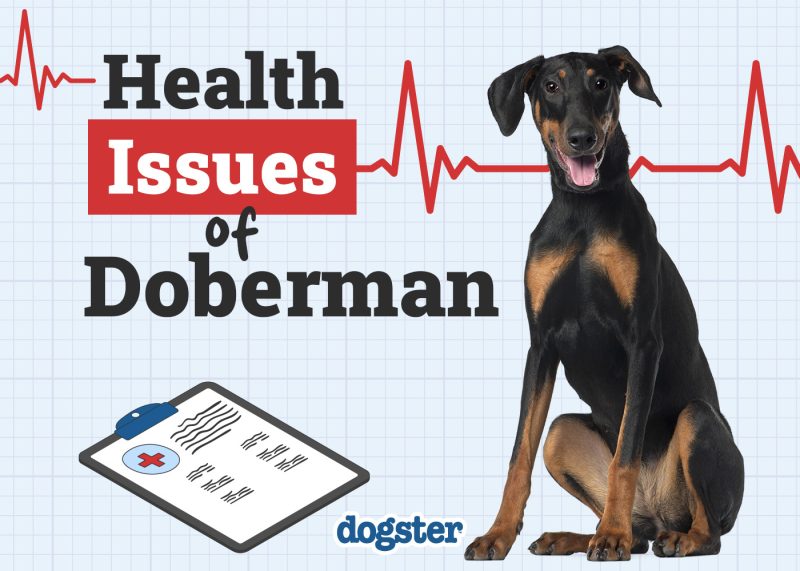In this article
View 2 More +Fennel is commonly used in salads, soups, and stews and has been widely used for health purposes in people, including for heartburn, bloating, and colic in infants. This aromatic herb is used for its flavorful bulb and its leaves and stalks.
With a unique flavor and wide range of uses, fennel is a staple in many households. But is it safe for your dog? The short answer is yes! Fennel is considered safe for most dogs to eat in moderation and in very small amounts.
In this article, we’ll examine the potential anecdotal benefits of feeding fennel to dogs, any potential concerns, and how to prepare it. Let’s get started!

What Is Fennel?
Fennel is a hardy, perennial flowering herb in the carrot family, although it is not considered a root vegetable. It has yellow flowers and small, feathery leaves with a licorice flavor, and it’s the primary ingredient in absinthe. Every part of the fennel plant is edible, from the bulb to the flowers, and it can be eaten raw or cooked.
Typically, the bulb is most often used in meals, but the dried leaves and flowers can also be used as a flavoring. Fennel is low in calories but high in nutrients like fiber and vitamins.

Potential Benefits of Feeding Fennel to Your Dog
American Society for the Prevention of Cruelty to Animals or the ASPCA class fennels as non-toxic to dogs when offered in very small quantities. This means, that even though considered non toxic, you can go overboard with offering it to your pooch, leading to potential health issues. Always speak to your vet about feeding fennel to your dog, especially if they are suffering from a health issue.
Fennel has a host of nutritional benefits for people, but it has most commonly been used as a breath freshener. Apart from that, there are other potential great benefits:
- Fennel is a great source of vitamin A and beta carotene, which are powerful antioxidants that can help fight free radicals and promote a healthy cardiovascular system.
- Potassium promotes optimal organ function, aiding in the functioning of the heart, muscle functions, and nerves.
- Iron is an essential mineral that aids in the synthesis of red blood cells and has various other vital roles in your dog’s physiological functioning.
- One of the most well-known benefits of fennel is its healthy effect on the digestive tract. It can help with constipation and bloat and prevent muscle pain and spasms.
- Calcium is essential for teeth, bones, and blood health.
However, although there are suggested health benefits of fennel for people, that doesn’t necessarily mean they have the same effects or are safe or appropriate for dogs. There are no scientific studies looking into the potential benefits of fennel for dogs, and either way, it should only be offered occasionally in very small amounts and according to veterinary advice. The benefits are unlikely to be felt and dogs will reap all of the required nutrients from their complete and balanced diet.

How to Add Fennel to Your Dog’s Diet
Fennel can be eaten in various ways, and the bulbs, stalks, leaves, and seeds are all safe for your dog in moderation if given the green light from your vet. However, your canine may not appreciate the potent aromatic flavor of the plant. This can make it difficult to add to your dog’s diet, in which case there is no need to force it.
Fresh fennel plants are available at most grocers, or you can buy the dried seeds and flowers in the spice aisle. The seeds can be used to make a light fennel tea, which you can add to their food bowl. Begin with a very small mixture, as too much may result in diarrhea. It is essential to take your dog’s size and weight into consideration and adjust the amounts accordingly while following your vet’s recommendations.

You may also try sprinkling a very small amount on your dog’s food, but again, they may not enjoy the aromatic flavor. Finally, you can try cooking the bulbs and mixing them into your dog’s food. Be sure to chop the bulb into tiny pieces since it has a strong flavor.
If you are unsure how much to give your dog, it’s a good idea to consult your vet. While fennel is considered safe for dogs in small amounts, too much of it at once can cause digestive troubles.
If you need to speak with a vet but can't get to one, head over to PangoVet. It's our online service where you can talk to a vet online and get the advice you need for your pet — all at an affordable price!

Final Thoughts
Fennel is generally considered safe and non toxic to dogs in small amounts and when used under veterinary guidance, but it cannot replace your dog’s diet in any way. Most of the claimed health benefits apply to people and are only anecdotal, while too much fennel can cause health issues. Fennel is an inexpensive and easy-to-grow herb, making for a quick and simple way to add extra nutrients to your dog’s diet if okayed by your vet.
See Also:





















